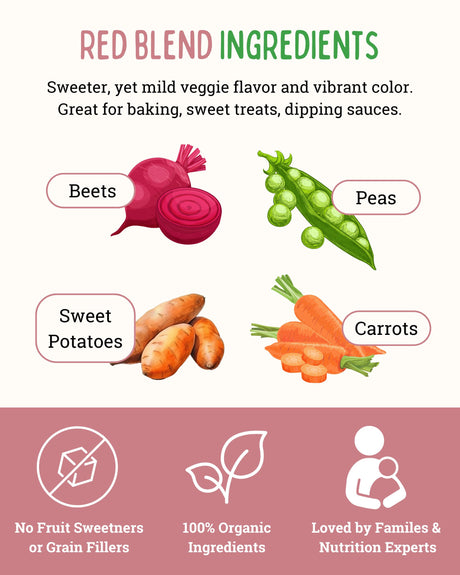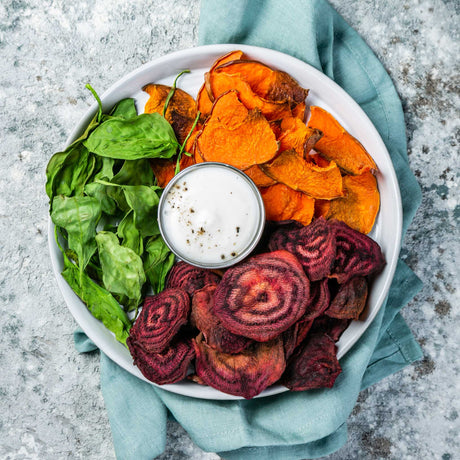Navigating Sugar After the Holiday Feast
The holiday season is synonymous with joy, celebration, and indulgence, often accompanied by an abundance of sweet treats and festive desserts. However, when the holiday lights dim and the decorations are put away, many of us find ourselves facing the aftermath of sugar overload.
It's a common scenario where holiday revelry can sometimes lead to excessive sugar consumption, leaving our bodies and health in need of some post-celebration TLC.
The Sweet Side of the Holidays
Holidays like Thanksgiving, Christmas, and New Year's Eve bring an array of delectable sweets and sugary delights to our tables. From pumpkin pies and gingerbread cookies to candy canes and champagne toasts, sugar often takes center stage during these festive occasions.
While it's perfectly natural to savor these sweet moments, it's equally essential to consider the impact of sugar on our health and well-being.
Balancing Indulgence with Health
As the holiday season draws to a close, the transition from an abundance of sugary treats to a more balanced, health-conscious diet becomes imperative. Post-holiday sugar management is not about guilt or restriction but rather about finding equilibrium and restoring our bodies to a healthier state.
In this article, we'll explore the importance of addressing post-holiday sugar intake for the sake of our overall health and well-being. Let's embark on this journey towards better sugar management together.
Understanding the Holiday Sugar Rush: Why Do We Indulge?

Festive Temptations Abound
During the holidays, the abundance of sugary treats and decadent desserts is undeniable. From office parties to family gatherings, there's no shortage of opportunities to indulge in cookies, cakes, and other confections.
The sheer availability of these treats makes it easy to overindulge.
Emotional Eating and Tradition
The holidays are emotionally charged for many of us, and we often turn to food, particularly sugary comfort foods, as a way to cope with stress or to connect with cherished traditions.
This emotional attachment to sweet treats can lead to overconsumption.
The Impact of Excessive Sugar Intake
While enjoying holiday sweets is a time-honored tradition, it's crucial to understand how excessive sugar intake can impact our health.
The Sugar-Health Connection
Consuming too much sugar, especially in a short period, can lead to various health issues. These can include weight gain, increased risk of chronic diseases like diabetes and heart disease, and even negative effects on mental health.
Understanding these potential consequences is essential for motivating healthier post-holiday choices.
Assessing Your Sugar Intake: Taking a Closer Look
Keeping a Sugar Journal
One useful strategy is to keep a journal of everything you eat and drink for a few days or a week. This journal can help you identify sources of added sugars in your diet that might go unnoticed otherwise.
Understanding Food Labels
Reading food labels is another critical skill for assessing your sugar intake. Look for terms like "sucrose," "glucose," "fructose," and other sugar-related words on ingredient lists.
Additionally, pay attention to the "added sugars" section on the nutrition label, which now appears on many packaged foods.
Identifying Hidden Sugars
Be on the lookout for hidden sugars in unexpected places, such as savory snacks, condiments, and even seemingly healthy foods like yogurt.
Learning to recognize these hidden sources is vital for making informed choices.
Setting a Sugar Limit
Once you've assessed your current sugar intake, consider setting a reasonable daily limit for added sugars. The American Heart Association recommends no more than 25 grams (about 6 teaspoons) of added sugars per day for women and 36 grams (about 9 teaspoons) for men.
These limits can serve as a guideline for managing your sugar consumption effectively.
Setting Realistic Goals for Kids: A Step Towards Healthier Habits

The Value of Goal Setting
Teaching kids about goal setting is a valuable life lesson. It helps them understand the importance of self-discipline, self-improvement, and working towards a healthier future.
Start with Small Steps
Children often respond well to gradual changes. Start with small, achievable goals to make the process manageable and less overwhelming.
Examples of Kid-Friendly Goals
- Limit Sugary Drinks: Encourage your child to replace sugary drinks like soda and fruit juices with water or milk. Set a goal like, "We will have one sugary drink per week."
- Choose Healthier Snacks: Teach your child to opt for healthier snack options like fruits, vegetables, or whole-grain crackers instead of sugary snacks. A goal could be, "We will have at least one fruit or vegetable as a snack each day."
- Moderate Dessert Intake: Allow your child to enjoy desserts in moderation. Set a specific dessert day each week, like "We will have dessert on Saturdays."
- Read Food Labels Together: Involve your child in reading food labels to identify added sugars in products. Make it a game to spot and avoid high-sugar items.
Positive Reinforcement
When your child reaches their sugar reduction goals, offer positive reinforcement and praise. This encourages them to continue making healthy choices and sets the foundation for a lifetime of good habits.
Healthy Alternatives: Sweet and Satisfying
Exploring Healthier Sweeteners
- Honey: Honey is a natural sweetener that can be used in moderation to add sweetness to foods and beverages. Opt for raw, unprocessed honey for the best flavor and health benefits.
- Maple Syrup: Pure maple syrup is another natural sweetener that offers a unique flavor profile. It can be drizzled on pancakes, waffles, or used in recipes as a sugar substitute.
- Stevia: Stevia is a plant-based sweetener that is much sweeter than sugar but has zero calories. It's available in liquid or powdered form and can be used to sweeten drinks and desserts without the added calories.
Snack and Dessert Alternatives
- Fruit: Fresh or dried fruits can satisfy your family's sweet tooth while providing essential vitamins and fiber. Try offering a fruit salad, apple slices with almond butter, or raisins as a snack.
- Yogurt Parfaits: Create delicious yogurt parfaits with Greek yogurt, fresh berries, and a drizzle of honey or maple syrup for sweetness. It's a balanced and sweet treat.
- Homemade Treats: Bake homemade treats using whole grains, like oatmeal cookies or banana bread. You can reduce sugar content by using healthier sweeteners.
EasyPeasie in the Mix
Consider incorporating EasyPeasie Veggie Blends into your recipes to add a nutritious boost without compromising on flavor. These vegetable powders can be mixed into various dishes, making it easier for your family to consume more veggies.
By gradually replacing sugary ingredients with these healthier alternatives and adding a touch of EasyPeasie Veggie Blends to your recipes, you can make your family's favorite dishes more nutritious while still satisfying their sweet cravings.
Mindful Eating Strategies: Savoring the Flavor

Understanding Mindful Eating
Mindful eating involves being fully present and engaged during meals. Encourage your family to put away distractions like phones and TV while eating.
Teach your kids to appreciate the flavors, textures, and aromas of their food. Encourage them to describe what they're tasting.
Recognizing Satiety Cues
Encourage your children to listen to their bodies. Are they truly hungry, or are they eating out of habit or boredom?
Teach your family the importance of portion control. Avoiding oversized servings can help prevent overconsumption of sugary foods.
The Power of Mindful Eating
By adopting mindful eating practices, you can help your family become more attuned to their bodies' hunger and fullness cues. This awareness can prevent mindless sugar consumption and lead to better overall eating habits.
It's a valuable skill that can benefit your children throughout their lives.
The Crucial Role of Hydration
Why Hydration Matters
Adequate water consumption supports the detoxification process, helping your body flush out toxins, including excess sugar. It's like giving your system a fresh start.
Sometimes, what we perceive as hunger is actually thirst. Encouraging your family to reach for a glass of water before diving into snacks can help manage sugar cravings effectively.
Infused Water: Flavorful and Fun
Adding slices of fruit, such as berries or citrus, to your water creates a refreshing and subtly sweet beverage. It's a fantastic way to encourage your family to drink more water.
For a twist, try cucumber and mint-infused water. It's a hydrating option that even kids may find appealing, especially if they're not keen on plain water.
The Sweet Taste of Hydration
Prioritizing hydration and incorporating herbal teas and infused water into your family's daily routine can make a significant difference during your sugar detox journey. These simple yet effective strategies not only support overall health but also introduce delightful alternatives to sugary beverages.
Seeking Support: You're Not Alone in This Sugar Rush

Lean on Loved Ones
Don't hesitate to reach out to your friends and family for support. Share your goals and challenges with them, and you'll likely find that they're more than willing to offer encouragement and join you on your sugar management journey.
Health Professionals Are Here to Help
When it comes to managing sugar, don't hesitate to consult with healthcare professionals. Registered dietitians and nutritionists can provide personalized guidance and tips tailored to your specific needs.
They can help you create a customized plan to achieve your sugar management goals.
Explore Support Groups
Joining a support group or program focused on sugar management can be incredibly beneficial. These groups provide a sense of community and a platform to share experiences and strategies.
Look for local support groups or online communities that align with your goals. Remember, seeking support is a sign of strength, not weakness. It can significantly enhance your efforts to effectively manage your sugar consumption and improve your overall health.
Summarizing A Holistic Approach to Sugar Management
The holiday season, with its sweet treats and indulgence, is a time of joy and celebration. However, when the festivities wind down, it's common to face the aftermath of sugar overload. Excessive sugar consumption during the holidays can leave our bodies and health in need of some post-celebration TLC.
The transition from an abundance of sugary treats to a more balanced, health-conscious diet becomes imperative. Post-holiday sugar management is not about guilt or restriction but rather about finding equilibrium and restoring our bodies to a healthier state.
In this blog, we've explored the importance of addressing post-holiday sugar intake for the sake of our overall health and well-being. By understanding the reasons behind holiday indulgence, assessing our sugar intake, setting realistic goals, and exploring healthier alternatives, we can embark on a journey towards better sugar management.
Moreover, teaching children about sugar reduction through goal setting, choosing healthier sweeteners, practicing mindful eating, and staying hydrated can instill lifelong healthy habits.
As we transition from the holiday season to the rest of the year, let's approach our diets with mindfulness, moderation, and a commitment to better health. Remember, managing sugar intake is not about deprivation but about making informed choices that nourish our bodies and support our well-being.
Cheers to a healthier and sweeter year ahead!
Leave your comments below; we love to hear from you! And don't forget to follow EasyPeasie for more veggie info and convo on YouTube, Facebook, and Instagram! ~ThePeas













